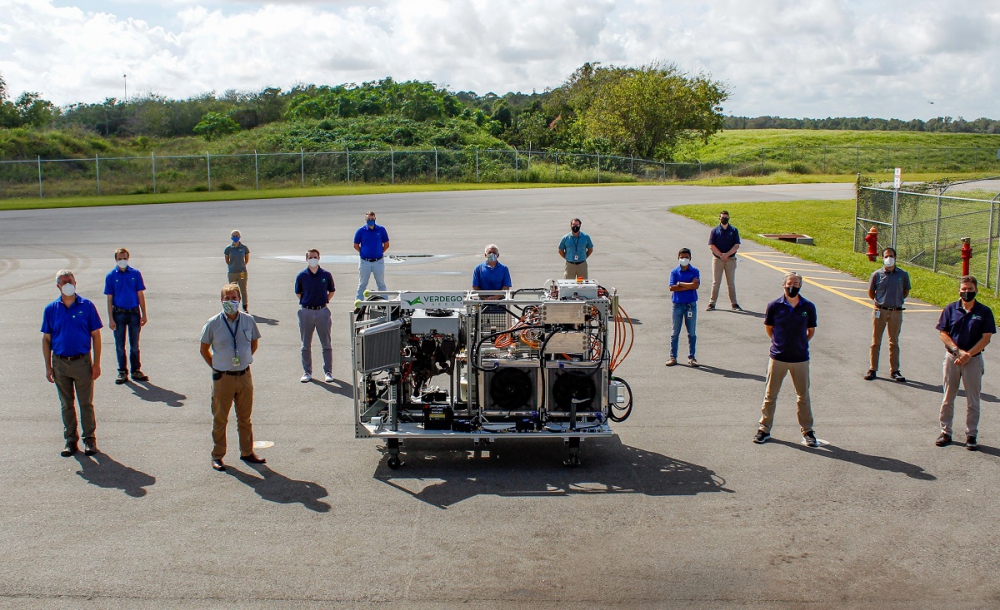, a hybrid-electric aerospace powertrain firm and tenant in Embry-Riddle Aeronautical University’s Research Park, has teamed up with the university to develop and commercialize patent-pending technology designed to mitigate electric aircraft noise.
Under an exclusive option agreement, VerdoGo Aero CEO Eric Bartsch and Executive Chair Erik Lindbergh will further develop the Embry-Riddle technology for commercialization.
“Although electric aircraft show great promise for reducing carbon emissions, fossil fuel use and operating costs, the propellers or rotors can be relatively noisy,” Bartsch explained. “Traditionally, electric aircraft rotors can spin faster to gain efficiency while also increasing noise levels, or spin slower and be less efficient but quieter.”
The patent-pending invention sprang from work by an Embry-Riddle graduate student, Lenny Gartenberg (now a Northrop Grumman engineer), Aerospace Engineering professor and Eagle Flight Research Center Director Dr. Richard “Pat” Anderson, and research engineer Dr. Borja Martos.
The technology being commercialized by VerdeGo Aero would automatically adjust the pitch of rotating propeller blades, while also adjusting motor torque to maintain constant thrust, Bartsch said.
In this way, it is possible to reduce noise or increase efficiency, while maintaining substantially constant thrust, altitude and airspeed.
“Previously, electric aircraft have had to prioritize either efficiency or noise abatement,” Bartsch explained, “but electric aircraft using the new technology could be designed to operate most efficiently at cruising altitude, where noise abatement is less of a concern. For example, they could switchover to a lower-noise mode as they descend over urban areas.”
For urban air mobility vehicles, reducing noise levels is a top performance metric, Embry-Riddle’s Pat Anderson noted.
“To imagine our noise-mitigating technology,” he said, “think about the 1980s movie Blue Thunder, in which a police helicopter had a silent mode. Our technology balances efficiency and noise pollution to provide a clean, quiet option for future public transportation.”
Traditionally, he added, “Electric aircraft designers have tended to focus on attempting to get maximum range and performance out of the vehicle while also reducing noise during critical phases of flight. This technology gives the aircraft designer the best of both worlds – reduced noise without having to pay a penalty in efficiency.”
VerdeGo Aero currently has 16 employees and the company has brought in more than $1 million in investments while generating millions of dollars in annual revenue to benefit the local economy. Bartsch and his team are developing a mechanical demonstration of the noise-mitigation technology, to be showcased at Embry-Riddle’s Research Park.
Embry-Riddle’s Dr. Stephanie Miller, executive director for Technology Transfer and Research Park initiatives (Legal Department), said,
“This is a great example of how university research can be translated into products that have real-world impacts. Our students benefit from the initial research in a lab, learning the process of innovation. Now that the intellectual property has been licensed to a company, jobs can be created and supported while the company continues to develop the proof-of-concept into a marketable product. In the end, the revenue from product sales that comes back to the university can be used to fund future research, restarting the cycle of innovation.”
Source: Press Release

